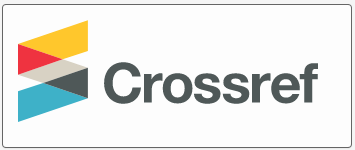Traditional and New Sports Terms For the Validity of Modern Understanding
DOI:
https://doi.org/10.52340/idw.2021.531Keywords:
Sports terminology, globalization, media linguistics, Englishisms, slang, vocabulary internationalizationAbstract
Over time, along with the world, language also evolves and changes. In order to save time and effort, people simplify their speech, often deliberately making changes in the language to achieve a special effect. In this respect, sport stands out in the first place, as it is an important factor in strengthening national unanimity, interpersonal relations and international cooperation. In the process of globalization, sport is becoming more international, getting closer to the representatives of different countries. These relations, of course, are reflected in the sports vocabulary of this or that language, so the language of sports has become one of the most intensively developing lexical systems,In the creation-borrowing and establishment-dissemination of sports terms in the 20s and 70s of the last century, more attention was paid to Georgian terminology. From the 90s of the 20th century, foreign vocabulary prevailed, Will.In recent years, a large number of sports journalists and commentators have chosen the easy way out - using cooking terms or slang instead of word production, indicating the international nature of the sport. The main reasons for the intervention of the Anglicans are the Internet, the culture and sport of pop music, as well as socio-psychological factors. For some, foreign vocabulary is perceived as superior to native. As if it is related to reading and learning, so speech containing foreign words is considered more socially prestigious. However, borrowing is justified only when the borrowed word fills in the missing realities of the language. However, it is not necessary to translate words for that. It is better to use the richest possibilities of Georgian language word production. This should be especially taken into account by sports journalists and commentators, as their speech has a contagious power and even poses a risk of unintentional imitation or infection.
Downloads
References
ალიბეგაშვილი გ. http://kvira.ge/385968, უკანასკნელად გადამოწმდა 05.04.2021;
გაზეთი „საქართველოს ფიზკულტურელი“, #1, 1934 წლის 13 აპრილი;
გაზეთი „საქართველოს ფიზკულტურელი“, #3-4, 1935 წლის 29 იანვარი;
გაზეთი „საქართველოს ფიზკულტურელი“, #13, 1935 წლის 1 მაისი;
გვარჯალაძე თამარ, გვარჯალაძე ისდორე, ინგლისურ-ქართული და ქართულ-ინგლისური ლექსიკონი, გამომცემლობა „საქართველოს მაცნე“;
დანელია ვაჟა (2018): სპორტის ტერმინოლოგიის წარმოებისა და დამკვიდრების ზოგიერთი საკითხი თანამედროვე ქართულ პრესაში, სტუ-ს ყოველკვარტალური სამეცნიერო ჟურნალი „განათლება“, №1 (20), 65-66;
„დროება“,1883, #228;
Махарадзе К. (2001): Репортаж без микрофона. М. Олма-Пресс, 107 стр.;
საშევარდენო ტანვარჯიშის სახელსახება (ტერმინოლოგია) - რუსულ-ქართული სიტყვარი (1920): თბ., გვ. 263-278;
ქართული ენის განმარტებითი ლექსიკონი, ერთტომეული, 1986, თბ., საქართველოს სსრ მეცნიერებათა აკადემია, ენათმეცნიერების ინსტიტუტი, ქართული საბჭოთა ენციკლოპედია;
„შევარდენი“,1920, #1, გვ. 13;







